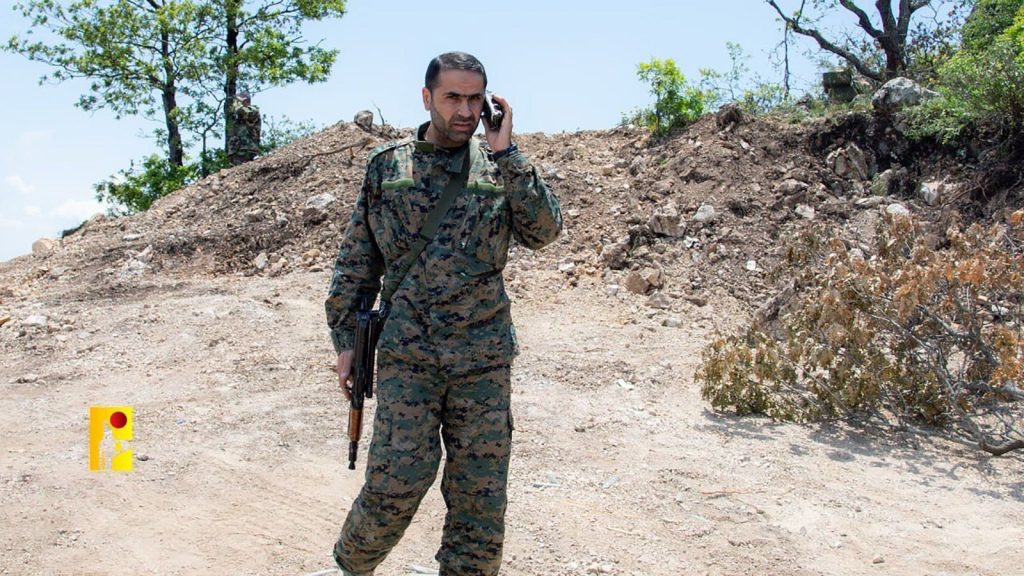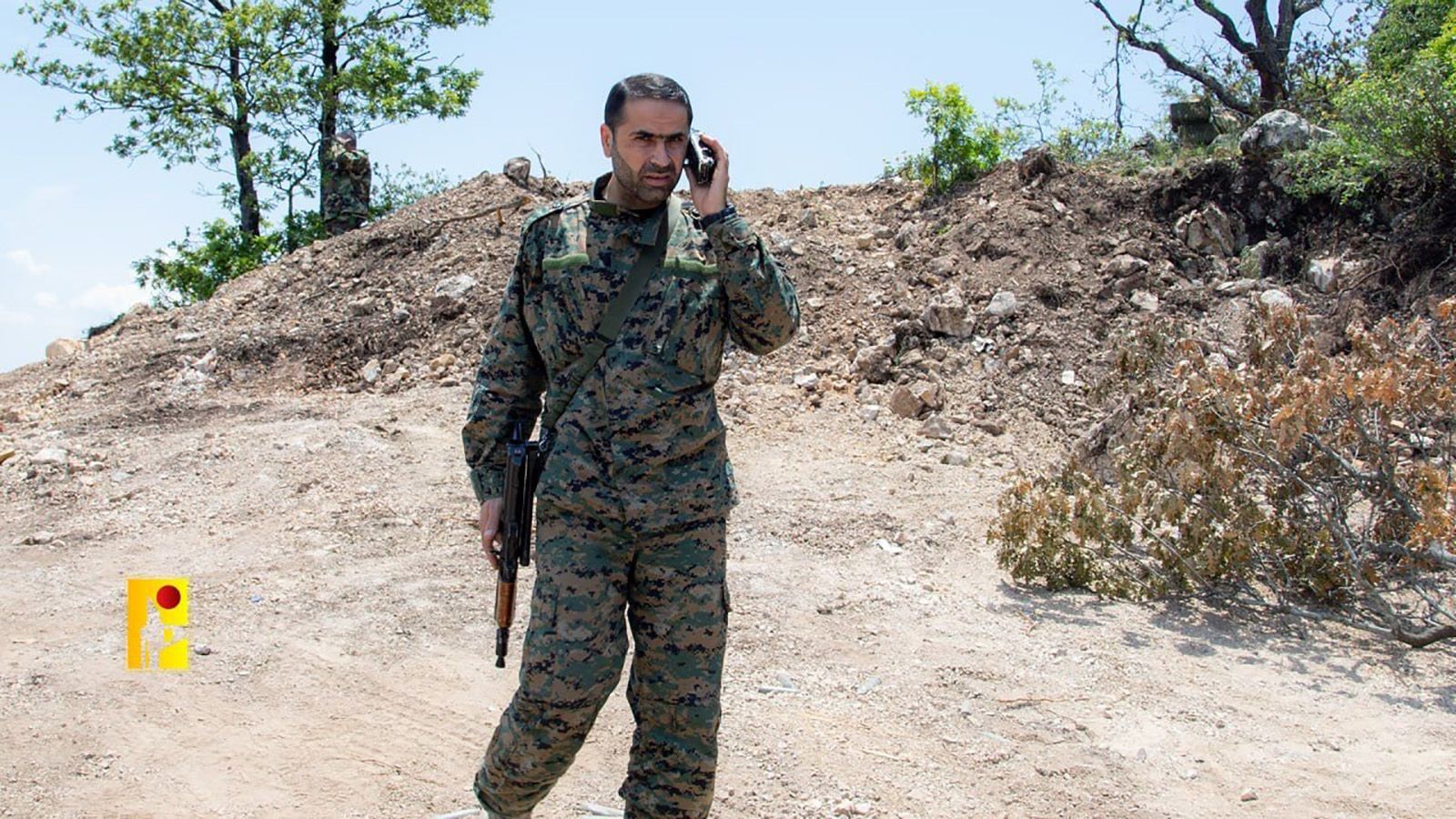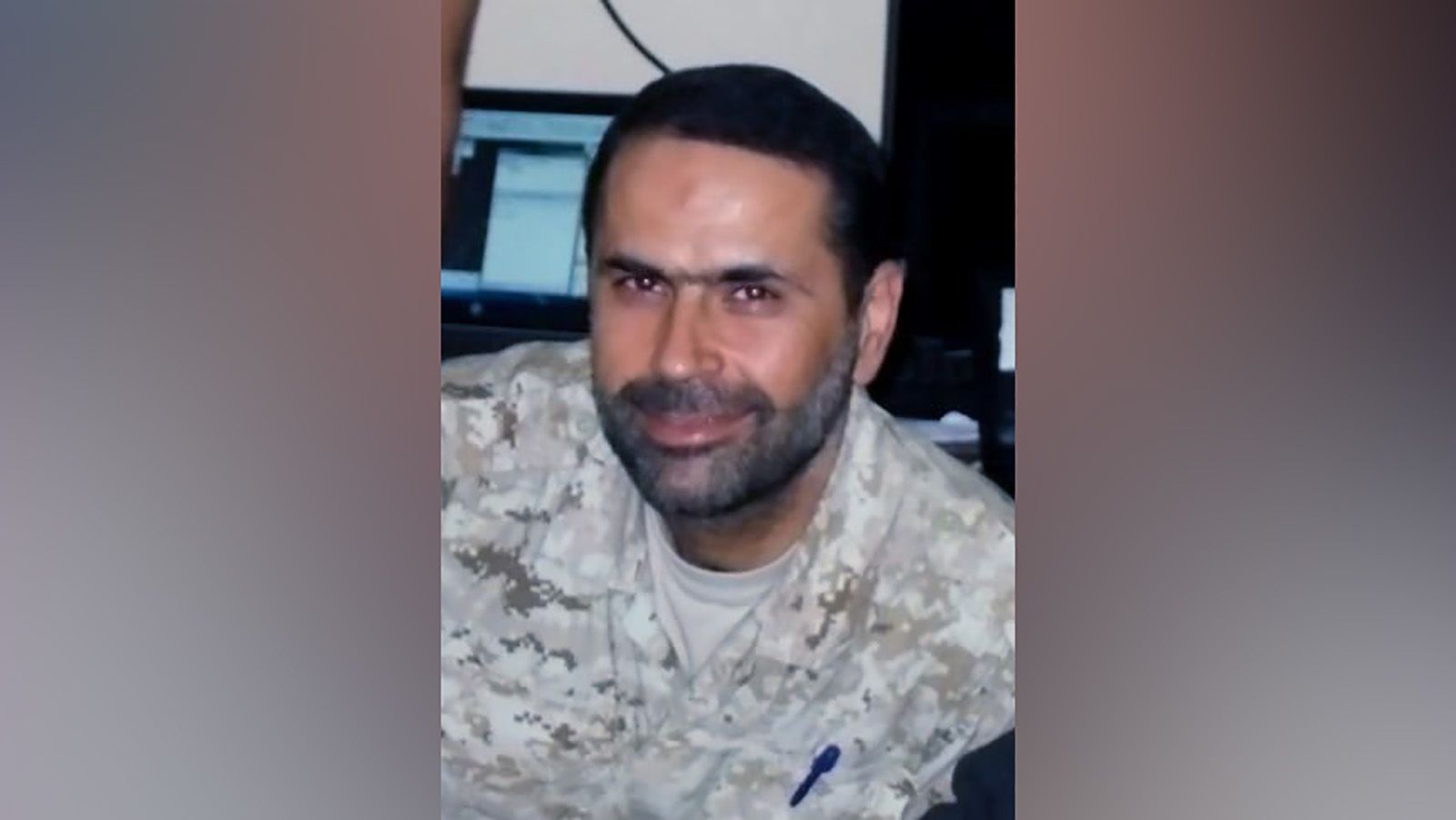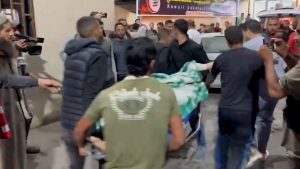Beirut, Lebanon (CNN) — A senior Hezbollah commander was killed in an Israeli drone strike on his car in southern Lebanon, a Lebanese security source told CNN on Monday, as fears of a wider regional conflict escalate.
The official, Wissam Tawil, is the most senior member of the Shiite militant group to be killed in an Israeli strike since Hezbollah and Israel began trading fire across the Lebanese-Israeli border on October 8, the day after Hamas carried out the deadliest terror attack in Israel’s history.
In a statement, Hezbollah also acknowledged the death of Tawil, who also went by the nom de guerre Hajj Jawad, in an Israeli attack.
The paramilitary group shared pictures of him alongside other top Hezbollah officials and Qasem Soleimani, the former commander of the Iranian elite unit that handles the country’s overseas operations who was killed in a US airstrike four years ago, an apparent indication of Tawil’s stature.
CNN has reached out to the Israel Defence Forces for comment.
Tawil’s killing comes just days after Saleh Al-Arouri, the deputy head of the political bureau of Hamas, and three others died in a strike on an office building in Beirut, the Lebanese capital.
Israel has not claimed responsibility for the attack.
Hezbollah on Saturday launched a rocket barrage against an airbase in northern Israel as part of a “preliminary response” into Arouri’s killing, which was followed by more intense cross-border fighting between the two sides.
IDF spokesman Daniel Hagari said on Sunday part of an Israel base was damaged in the attack.
Israel has responded by focusing on Hezbollah’s elite Radwan forces stationed near the border.
“Our focus on Hezbollah’s Radwan forces in southern Lebanon is driving them away from the border. We are determined to continue creating a different security reality in the north, one that ensures safety for the residents,” Hagari said.
Israel on Monday morning struck Hezbollah targets in southern Lebanon after the group fired an anti-tank missile toward the city of Kiryat Shmona in northern Israel, the IDF said. The Lebanese militant group has been launching its own salvos against Israel, the Hezbollah-owned Al Manar news outlet reported.
Separately, Israel’s military said it had killed Hamas militant Hassan Hakashah in the southern Syrian town of Beit Jinn on Monday, whom it called a “central figure” responsible for directing the firing of rockets from Syria towards Israel.
Hamas has so far not publicly commented on the death.
Tawil’s death is the latest incident to fuel concerns that the October 7 terror attack against Israel is now spiralling into a wider regional conflagration.
“This is a moment of profound tension in the region,” US Secretary of State Antony Blinken said on Sunday during his visit to the Middle East. “This is a conflict that could easily metastasise, causing even more insecurity and even more suffering.”
Responding on Monday to the killing of Talil, Blinken said: “It’s clearly not in the interest of anyone, Israel, Lebanon, Hezbollah, for that matter, to see this, to see this escalate and to see an actual conflict.”
“The Israelis have been very clear with us that they want to find a diplomatic way forward that creates the kind of security that allows Israelis to return home,” he said at a press gaggle in Saudi Arabia ahead of flying to Israel.
Nearly 100,000 Israelis have been forced to leave their homes in northern Israel because of the threat from Hezbollah, Blinken said, adding that the US was also working on a diplomatic solution to allow Lebanese citizens to return to their homes in southern Lebanon.
Israel first responded to the October 7 attack by declaring war on Hamas and launching an intensive military operation in Gaza.
Its aerial bombardment and ground campaign have now left nearly 23,000 people dead – about 1 of every 100 people in the enclave – according to the Hamas-run Gaza Health Ministry.
Both the health ministry in Gaza and its counterpart in the occupied West Bank suggest that approximately 70% of those killed or injured are women and children.
Israel says more than 8,000 of the dead are militants it is targeting in its war on Hamas.
Further south, Iran-backed Houthi rebels in Yemen have fired rockets at Israel and launched more than 100 attacks against about a dozen commercial and merchant ships transiting the Red Sea over the past few weeks, threatening one of the world’s most vital commercial sea routes.
On the northern border with Lebanon, fear is growing that what was once tit-for-tat strikes between Israel and Hezbollah forces in a four-kilometre range of the border region could spiral further.
Israeli Prime Minister Benjamin Netanyahu visited troops stationed in Kiryat Shmona on Monday and said the country “will do everything to restore security.”
“We will do whatever it takes. Of course, we prefer that this be done without a wide campaign, but that will not stop us,” he said.
Netanyahu hinted that the IDF could engage in a wider military campaign as it has in Gaza, saying that Israel gave Hezbollah “an example of what is happening to their friends in the south, this is what will happen here in the north.”








More Stories
Israeli military operations in Rafah expand
Miss Teen USA steps down days after Miss USA’s resignation
Weather forecast: Thursday, May 9, 2024